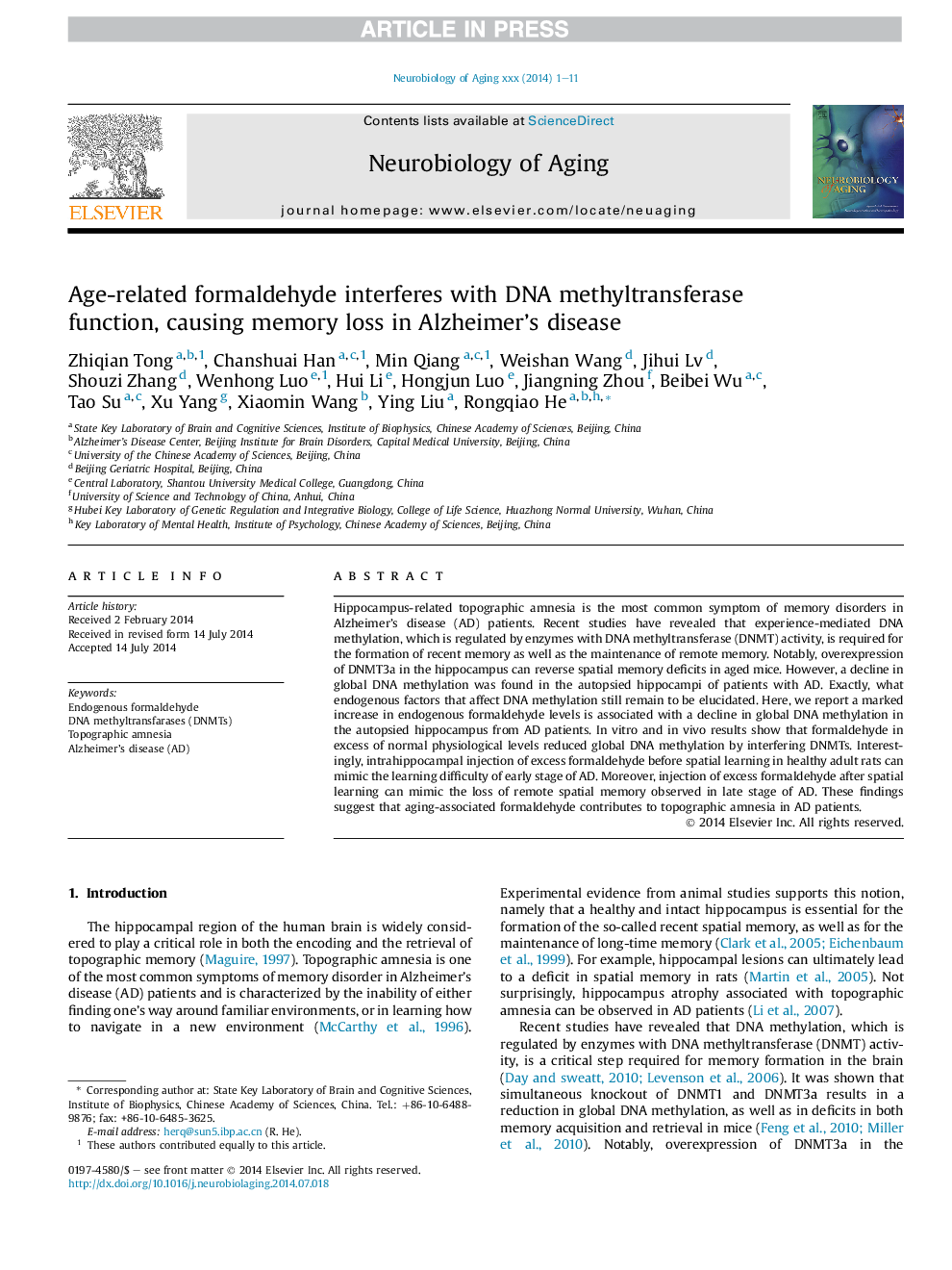| Article ID | Journal | Published Year | Pages | File Type |
|---|---|---|---|---|
| 6804947 | Neurobiology of Aging | 2015 | 11 Pages |
Abstract
Hippocampus-related topographic amnesia is the most common symptom of memory disorders in Alzheimer's disease (AD) patients. Recent studies have revealed that experience-mediated DNA methylation, which is regulated by enzymes with DNA methyltransferase (DNMT) activity, is required for the formation of recent memory as well as the maintenance of remote memory. Notably, overexpression of DNMT3a in the hippocampus can reverse spatial memory deficits in aged mice. However, a decline in global DNA methylation was found in the autopsied hippocampi of patients with AD. Exactly, what endogenous factors that affect DNA methylation still remain to be elucidated. Here, we report a marked increase in endogenous formaldehyde levels is associated with a decline in global DNA methylation in the autopsied hippocampus from AD patients. In vitro and in vivo results show that formaldehyde in excess of normal physiological levels reduced global DNA methylation by interfering DNMTs. Interestingly, intrahippocampal injection of excess formaldehyde before spatial learning in healthy adult rats can mimic the learning difficulty of early stage of AD. Moreover, injection of excess formaldehyde after spatial learning can mimic the loss of remote spatial memory observed in late stage of AD. These findings suggest that aging-associated formaldehyde contributes to topographic amnesia in AD patients.
Keywords
Related Topics
Life Sciences
Biochemistry, Genetics and Molecular Biology
Ageing
Authors
Zhiqian Tong, Chanshuai Han, Min Qiang, Weishan Wang, Jihui Lv, Shouzi Zhang, Wenhong Luo, Hui Li, Hongjun Luo, Jiangning Zhou, Beibei Wu, Tao Su, Xu Yang, Xiaomin Wang, Ying Liu, Rongqiao He,
